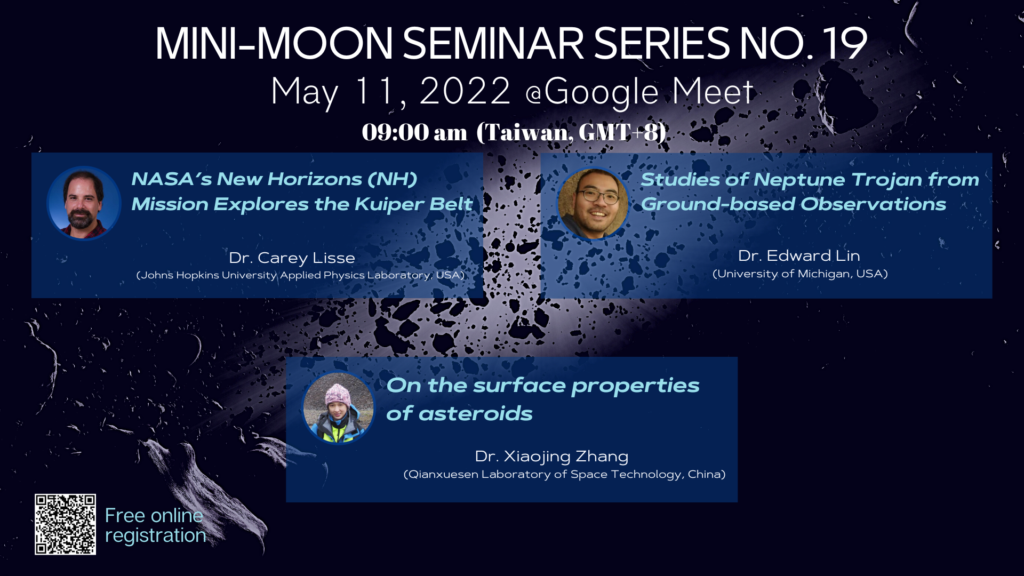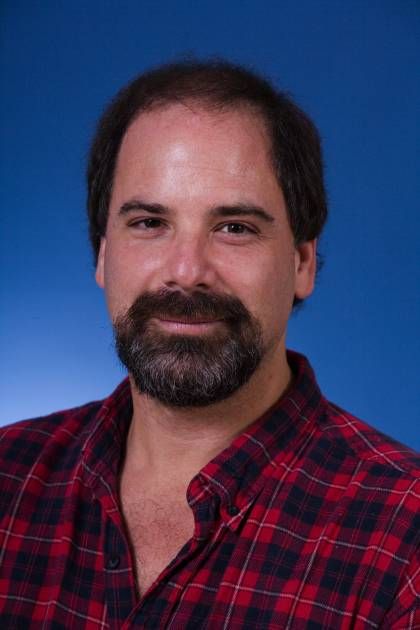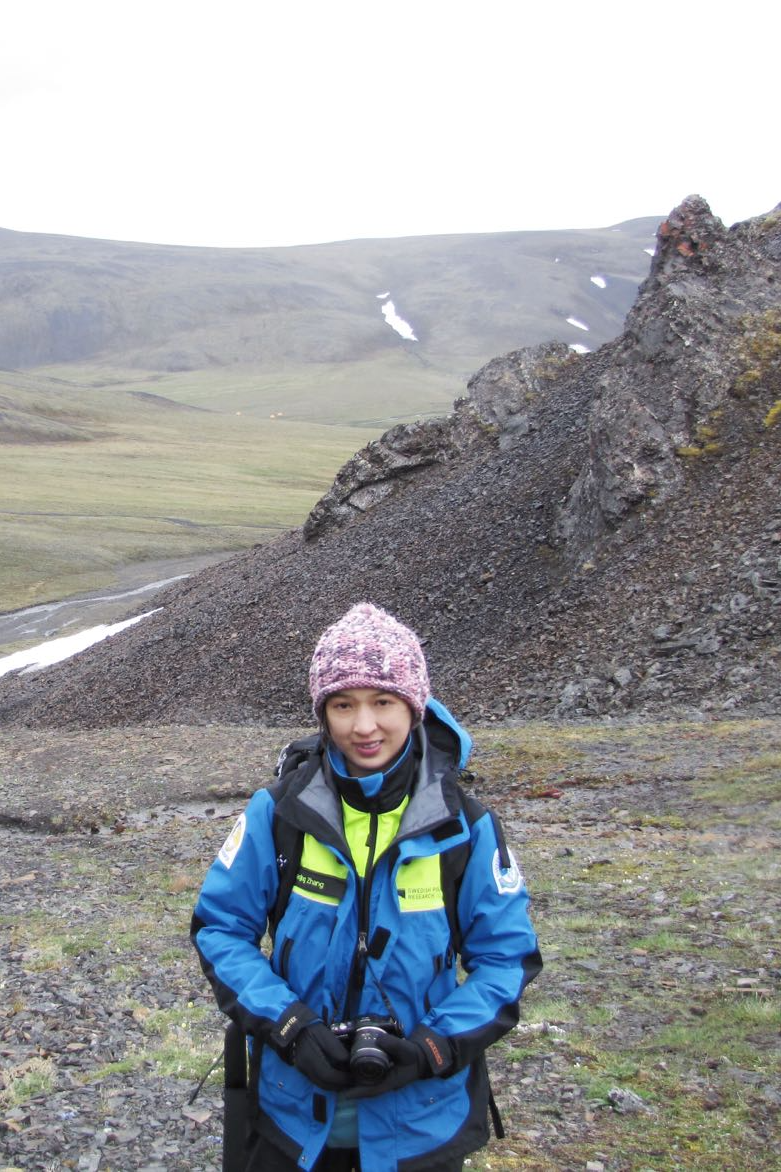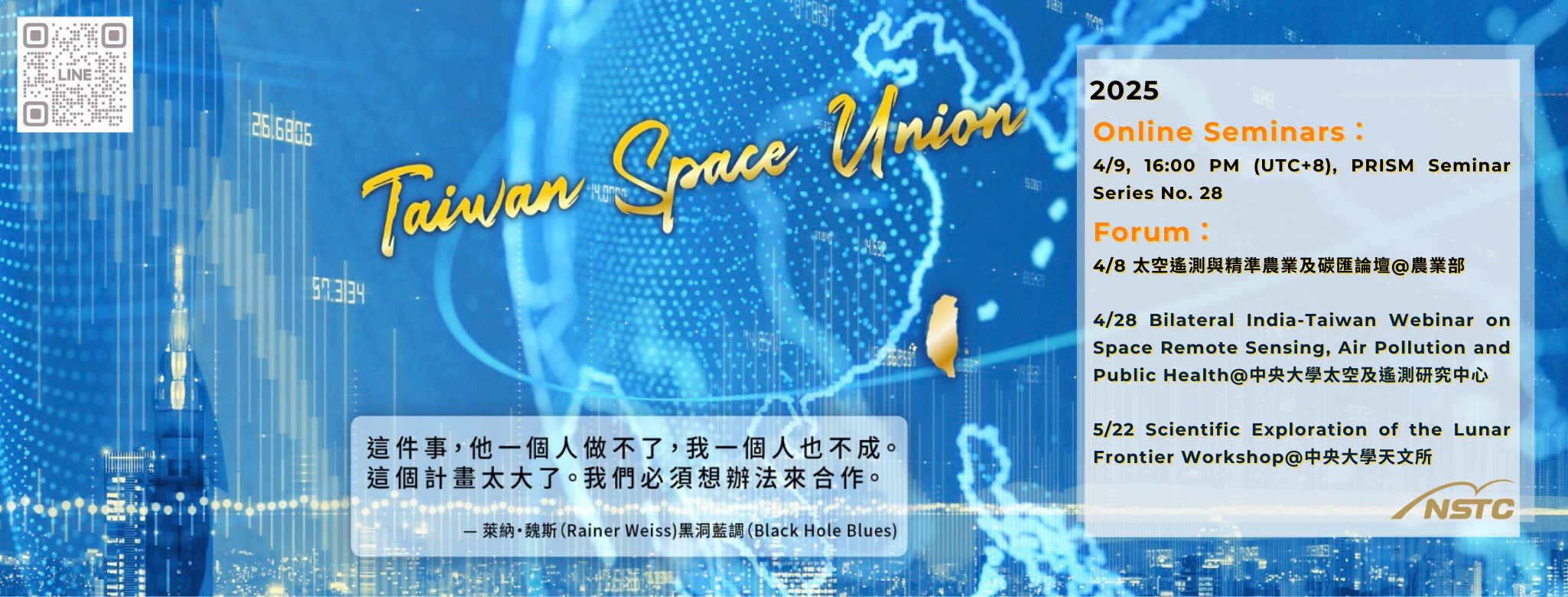
Speakers

Carey Lisse
Dr. Carey Lisse has over 40 years of experience in experimental and observational research that includes studies in astrophysics, detector physics, (bio)chemical physics, optics, electronics, and remote sensing data analysis. His overall goals are to better understand the formation & evoution of solar systems. At JHU-APL, he is involved with studying the physical properties of primitive solar system objects; the rock-forming dust contained in comets, the IPD cloud, the Proto-Solar Nebula, and YSOs; x-ray emission from solar system bodies and the heliosphere; and designing, building, and operating Solar System spacecraft missions.
SCIENTIFIC ACHIEVEMENTS
• Member of New Horizons Science Team (2014 – Present)
• Member of SPHEREx Science Team (2017 – Present)
• Member of Interstellar Probe Mission Study Team (2016 – Present)
• Member of Spitzer Space Telescope Extended Science Team (2005 – 2020)
• Led NASA Comet ISON and Comet Siding Spring Observing Campaigns (2013-2014)
• Member of Deep Impact/Epoch/EPOXI Science Teams (1999 – 2013)
• Determination of Ongoing Late Heavy Bombardment in η Corvi (2011)
• Discovery of Giant Hypervelocity Impact Debris around HD172555 (2009)
• Discovery of Terrestrial Planet Formation in Habitability Zone of HD113766 (2007)
• Composition of Comet Tempel 1 Ejecta from Spitzer-Deep Impact Observations (2005)
• Asteroid Named CaseyLisse (2002)
• First Detection of Solar Wind Charge Exchange With Cometary Neutrals (2001)
• Discovery of New Carbon Star LSF1 (2000)
• Discovery of X-ray Emission From Comets (1996)
• Member of Nobel Prize Winning COBE Team (1985 – 1995)

Edward Lin
Education & Experience:
2005, National Tsing Hua University, B.A. in Physics
2008, National Central University, Master of Astronomy
2013, National Central University, Ph.D. in Astronomy
2013-2017, National Central University, Research Fellow, Institute of Astronomy
2017-2020, University of Michigan Ann Arbor, Research Fellow, Department of Physics
2020-, University of Michigan Ann Arbor, Assistant Research Scientist
Honors and Awards:
Asteroid “11462 Hsingwenlin (1981 ES23)”
Chinese Academy of Sciences Fellowship for Taiwan Youth Visiting Scholars
Field of Interest:
Physical Properties of minor planets; Astronomical Data Mining

Xiaojing Zhang
Dr. Xiaojing Zhang
Affiliation:
Qian Xuesen Laborotary of Space Technology, China Academy of Space Technology, Beijing
Dr Zhang was trained as a geologist and the research experience in geology has sparked her great interest in understanding the origin and geological evolution of the solar system through exploring small bodies. She is now focusing on studying the surface property of small bodies and developing regolith simulants for space exploration missions.
EDUCATION
08.2011 – 09.2015, PhD, Department of Geological Sciences, Stockholm University, Sweden
09.2008 – 06.2011, MSc, Institute of Geology and Geophysics, Chinese Academy of Sciences, China
09.2004 – 06.2008, BSc, Faculty of Earth Resources, China
University of Sciences, Wuhan, China
WORK EXPERIENCE
05.2018 – present, Associate professor, Qian Xuesen Laborotary of Space Technology, Beijing
05.2017 – 04.2018, Postdoctoral Fellow, Institute of Earth Sciences, Academia Sinica, Taiwan
03.2016 – 04.2017, Postdoctoral Fellow, Department of Environmental Sciences, Nagoya University, Japan
09.2015 – 03.2016, Postdoctoral Fellow, Department of Geological Sciences, Stockholm University, Sweden
NASA’s New Horizons (NH) Mission Explores the Kuiper Belt
Dr. Carey Lisse
Studies of Neptune Trojan from Ground-based Observations
Dr. Edward Lin
On the surface properties of asteroids
Dr. Xiaojing Zhang

